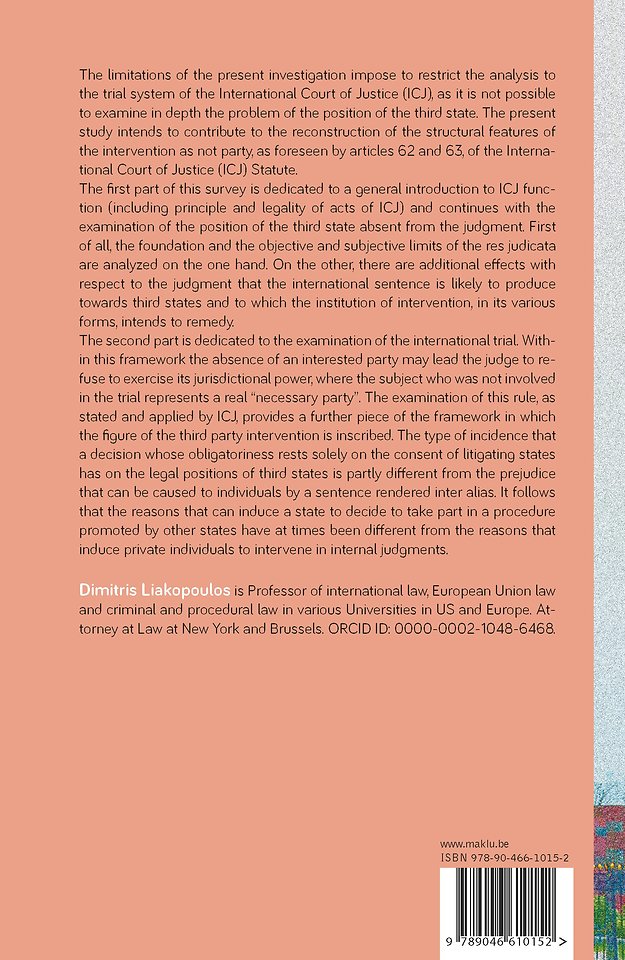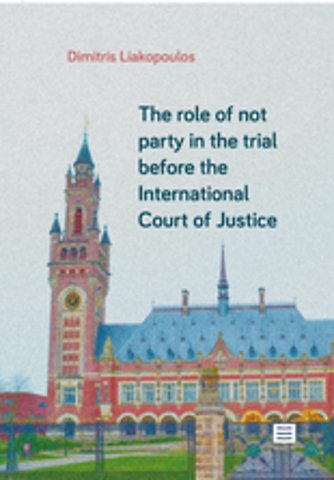



Dimitris Liakopoulos is Full Professor of European Union Law at the Fletcher School-Tufts University (MA in international law and MA of Arts in Law and diplomacy) and Full Professor of International and European Criminal and Procedural Law at De Haagse Hogeschool-The Hague.
Meer over Dimitris LiakopoulosThe role of not party in the trial before the International Court of Justice
Paperback Engels 2020 1e druk 9789046610152Samenvatting
The limitations of the present investigation impose to restrict the analysis to the trial system of the International Court of Justice (ICJ), as it is not possible to examine in depth the problem of the position of the third state.
The present study intends to contribute to the reconstruction of the structural features of the intervention as not party, as foreseen by articles 62 and 63, of the International Court of Justice (ICJ) Statute. The first part of this survey is dedicated to a general introduction to ICJ function (including principle and legality of acts of ICJ) and continues with the examination of the position of the third state absent from the judgment. First of all, the foundation and the objective and subjective limits of the res judicata are analyzed on the one hand.
On the other, there are additional effects with respect to the judgment that the international sentence is likely to produce towards third states and to which the institution of intervention, in its various forms, intends to remedy. The second part is dedicated to the examination of the international trial. Within this framework the absence of an interested party may lead the judge to refuse to exercise its jurisdictional power, where the subject who was not involved in the trial represents a real “necessary party”.
The examination of this rule, as stated and applied by ICJ, provides a further piece of the framework in which the figure of the third party intervention is inscribed. The type of incidence that a decision whose obligatoriness rests solely on the consent of litigating states has on the legal positions of third states is partly different from the prejudice that can be caused to individuals by a sentence rendered inter alias. It follows that the reasons that can induce a state to decide to take part in a procedure promoted by other states have at times been different from the reasons that induce private individuals to intervene in internal judgments.
Specificaties
Lezersrecensies
Anderen die dit boek kochten, kochten ook
Rubrieken
- advisering
- algemeen management
- coaching en trainen
- communicatie en media
- economie
- financieel management
- inkoop en logistiek
- internet en social media
- it-management / ict
- juridisch
- leiderschap
- marketing
- mens en maatschappij
- non-profit
- ondernemen
- organisatiekunde
- personal finance
- personeelsmanagement
- persoonlijke effectiviteit
- projectmanagement
- psychologie
- reclame en verkoop
- strategisch management
- verandermanagement
- werk en loopbaan





